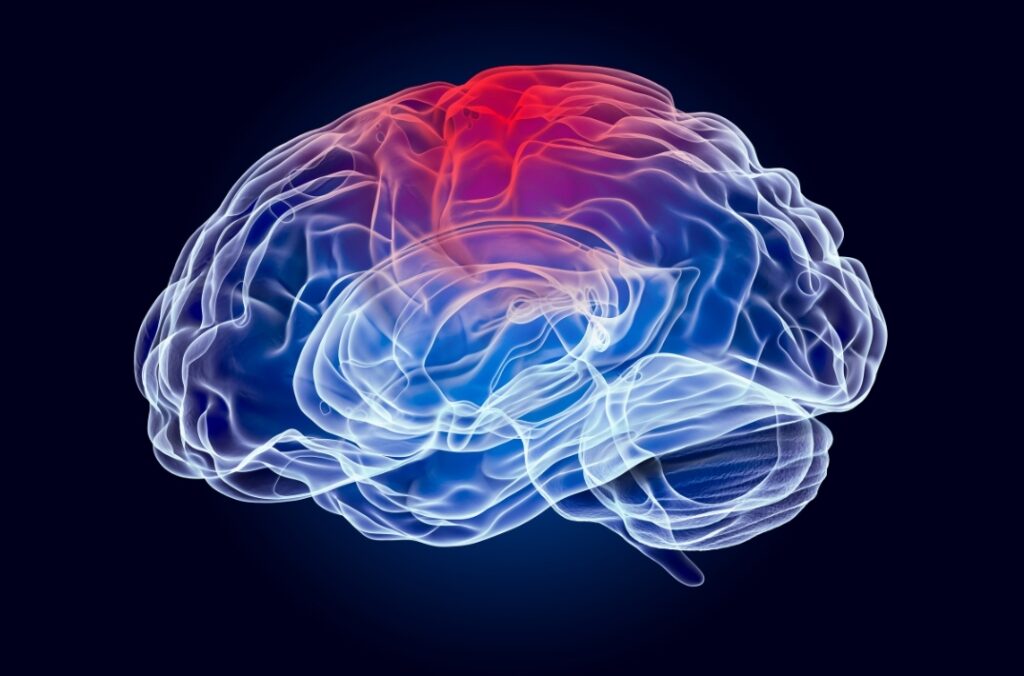Guide to Proving a Traumatic Brain Injury Case
Proving a Traumatic Brain Injury (TBI) case can be challenging.
This guide was created to help TBI survivors and their loved ones understand how lawyers link trauma to brain injury and learn the necessary strategies in order to build a successful case in court.

Here is the issue – oftentimes, survivors of a brain injury look completely “normal” – this can lead a jury to believe that no real damage has actually occurred, even though the victim may be suffering from non-visual cognitive, physical, and emotional problems. In other words, in brain injury cases involving negative findings on a CT scan or MRI, there is no “broken arm” a lawyer can show the jury to “prove” a TBI survivor’s injuries.
So, what is a lawyer to do if he or she can’t provide a jury with a “picture” demonstrating how the brain injury has drastically changed the injured party’s life? In order to portray the damages to the court, visual evidence, objective testing, experts, and witnesses are critical in brain injury litigation.
What is a Traumatic Brain Injury?
A Traumatic Brain Injury (TBI) happens when a bump, blow, jolt, or other head injury causes damage to the brain – when trauma occurs to the brain.
How Do I Know if I Have a Traumatic Brain Injury?
Traumatic Brain Injury symptoms may not appear right away. Signs of a TBI may take days or even weeks to recognize.
Symptoms could include:
- A headache that gets worse or does not go away
- Loss of consciousness for a few seconds to a few minutes
- Repeated vomiting or nausea
- Convulsions or seizures
- Inability to awaken from sleep
- Slurred speech
- Weakness or numbness in the arms and legs
- Dizziness or loss of balance
- Sensitivity to light or sound
- Cognition changes
Evidence
Because we learn approximately 80% from what we see and only 15% of what we hear, the use of visual evidence in a brain injury trial is critical.
Demonstrative
Many forms of visual aids in trial are called “demonstrative evidence” and include things like CT scans, diagrams, and computer simulations. Many times, by using demonstrative aids, an attorney can demonstrate the extent of the brain injury, prove the victim suffered from cognitive, physical, or emotional problems as a result of the trauma, and connect the brain injury to the specific traumatic event. For example, if the head trauma was so severe as to cause a brain bleed, the CT scan or MRI demonstrating the hemorrhage is worth its weight in gold, especially if made into a “3D” image. However, if radiology studies are negative, demonstrative exhibits are still key. Things such as brain mapping, a biomechanic exhibit, or a “day in the life” video may be valuable pieces of evidence.
Witnesses
The most important part of winning a brain injury case, however, is witnesses. At Tittle & Perlmuter, we use both expert and lay witnesses to successfully prove our case. Often times, we use two medical experts, a neuropsychologist coupled with a neurologist or physical medicine and rehabilitation doctor, to teach the jury how serious the brain injury is and how that injury alters the life of the brain injury survivor.
The most important witnesses, though, are the “before and after” witnesses. Those are individuals that were close to the brain injury survivor prior to the injury and remained close after, and will be able to testify how the injury has affected the injured’s life.
Helpful Resources
MetroHealth Brain Center
- Phone: (216)-778-8822
- Website: www.metrohealth.org/neurology/brain-center
HansonHouse Traumatic Brain Injury Clubhouse
- Phone: (800)-444-9900
- Website: www.hansonhouseberea.com
Brain Injury Association of Ohio
- Phone: (800)-444-6443
- Website: www.biaoh.org
Brain Injury Association of America
- Phone: (800)-444-6443
- Website: www.BIAusa.org
The Winning Strategy
With the well-planned use of visual aids, witness testimony, medical records, and other evidence, an experienced attorney can prove the onset of the Traumatic Brain Injury to the jury.
Brain injuries cause irreparable damages that affect you for the rest of your life.
If you or a loved one suffered a brain injury as a result of medical negligence or car accident, the Cleveland Brain Injury Lawyers at Tittle & Perlmuter can help. We are ready to hear your case and advise you on your course of action as you adjust to life after your injury. Call us at (216)-677-3589 or fill out a contact form for a free, no-obligation consultation with one of our experts.

